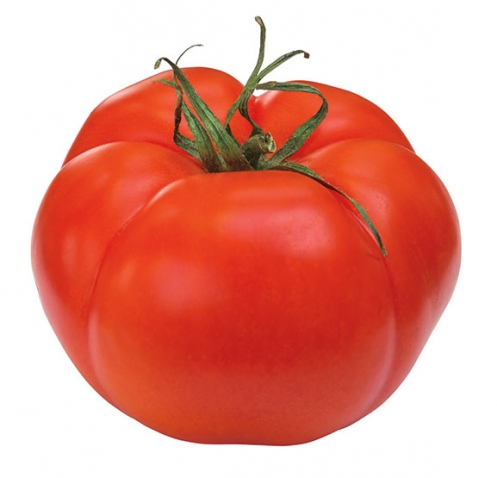When I was a teenager, my family moved into the city—a house on a postage-stamp lot in The Highlands in Louisville, Ky.—our new next-door neighbor marched over, shouted “Tomato King,” and placed a dozen ripe beefsteaks on the entry mat. He had ripped out his boxwoods and put in tomato plants; his backyard didn’t have room for gardens because it was lined with broken pinball machines.
The Tomato King was a pinball-machine repairman. That summer, the tomatoes he didn’t give to us he ate like apples on his front stoop, throwing the cores into the grass. When it rained, one of his rotating live-in girlfriends (one for weekdays, one for weekends) helped him pull tarps over the backyard repair station.
At our old house, we couldn’t spy on the neighbors unless we walked through a stretch of woods and their yard and then somehow obscured ourselves under a window amid a few daylilies. Also, we knew our neighbors. Their lives held no mysteries.
In the city, our windows were 10 feet from the Tomato King’s. The houses were identical, built the same year by the same architect. The windows lined up. More importantly, the Tomato King’s character begged a filling in of gaps, a casual eavesdropping, a friendly espionage. Watching him move from room to room, listening to his pinball machines play maniacal songs in the middle of the night, I discovered the joy of stranger-neighbors who let you build your own stories about them.
I’m all for establishing community and participating in mutual aid. I love knowing kids as they grow up, and I’ve benefited from the favors of people who live nearby. I’m not opposed to neighbor friendship. However, having one stranger-neighbor keeps your curiosity alive. It’s a puzzle you’ll never finish because it only gets bigger and more complicated and fun. The mystery neighbor is all the children’s literature you loved—Harriet the Spy, Tuck Everlasting, Gone-Away Lake—right there on your own street.
In Park Slope, my mystery neighbor was the extremely ripped guy on the second floor who taught physical education for the CUNY system so he could keep earning master’s degrees. He loved an M.B.A., an M.F.A., an M.P.A. He told me this when we were both staring at a pile of dog poop left in the middle of our entry hall. I hurried off, because this man’s charming contradiction was the perfect beginning of a portrait. I wanted to draw the rest on my own, so in the months after, I lurked, cataloguing more things about him. He rigged fake deliveries with dye packs to try to catch our mail thief. He posted flyers educating residents on the abuses of our new management company. He was a vigilante, an advocate for the disenfranchised. I was living with a terrible boyfriend, and I needed a hero in my life.
Maybe the real purpose of a mystery neighbor is to allow us to be in the orbit of an outsized character, someone who symbolizes a way out of our extraordinary pain. Back in Louisville, the Tomato King was the most resourceful person I’d ever met. My family had become his next-door neighbor because we couldn’t pay our mortgage. We were broke. I was scared of real poverty. I was about to graduate high school, and I felt immense pressure to get out, do something big, make gobs of money to reimburse my parents for all their sacrifices. The Tomato King’s electricity had been cut off, but his rooftop generator meant survival was always possible.
During 2020, The Year at Home, I lay under my jacaranda tree in Los Angeles and listened to the family across the street play badminton at dusk. The Belgian paced on his deck, exasperated, rolling calls. The composer and the retiree discussed where the heck these feral chickens came from. Being unable to move through the world, these neighbors became all the people I might watch in an airport or across a café or in the park. After a few months of lockdown, I was poor in life experiences but rich in stranger-neighbors.
Six months later, after the annual fires subsided and LA was resigning itself to an oppressively unknown length of additional shutdown, the guy who was born on the street, way up at the top of the dead end, started a phone tree. He wanted to be able to communicate in case “things got worse.” We were all entrenched in our loneliness, but the feral chickens were still running around. They brought people outside, which led to more introductions. Now, of course, the new text chain is planning a block party for fall 2021.
But listen to me: I vow to keep one of these neighbors a mystery. Someone who has an interesting front yard and takes walks at weird hours. Someone who will let me build a story I can tell myself when every other story feels heavier than stone. We’ve embarked on a new chapter, but we’ll never fully shake the one we just lived. One day, maybe every day, I’ll need this person I never want to fully know.
Kate Erickson ’05 is a TV writer based in Los Angeles, where she has written for several shows including Mr. Robot (USA) and Fear the Walking Dead (AMC). She can be found on Twitter at @katefromky.








We ask that those who engage in Wellesley magazine's online community act with honesty, integrity, and respect. (Remember the honor code, alums?) We reserve the right to remove comments by impersonators or comments that are not civil and relevant to the subject at hand. By posting here, you are permitting Wellesley magazine to edit and republish your comment in all media. Please remember that all posts are public.